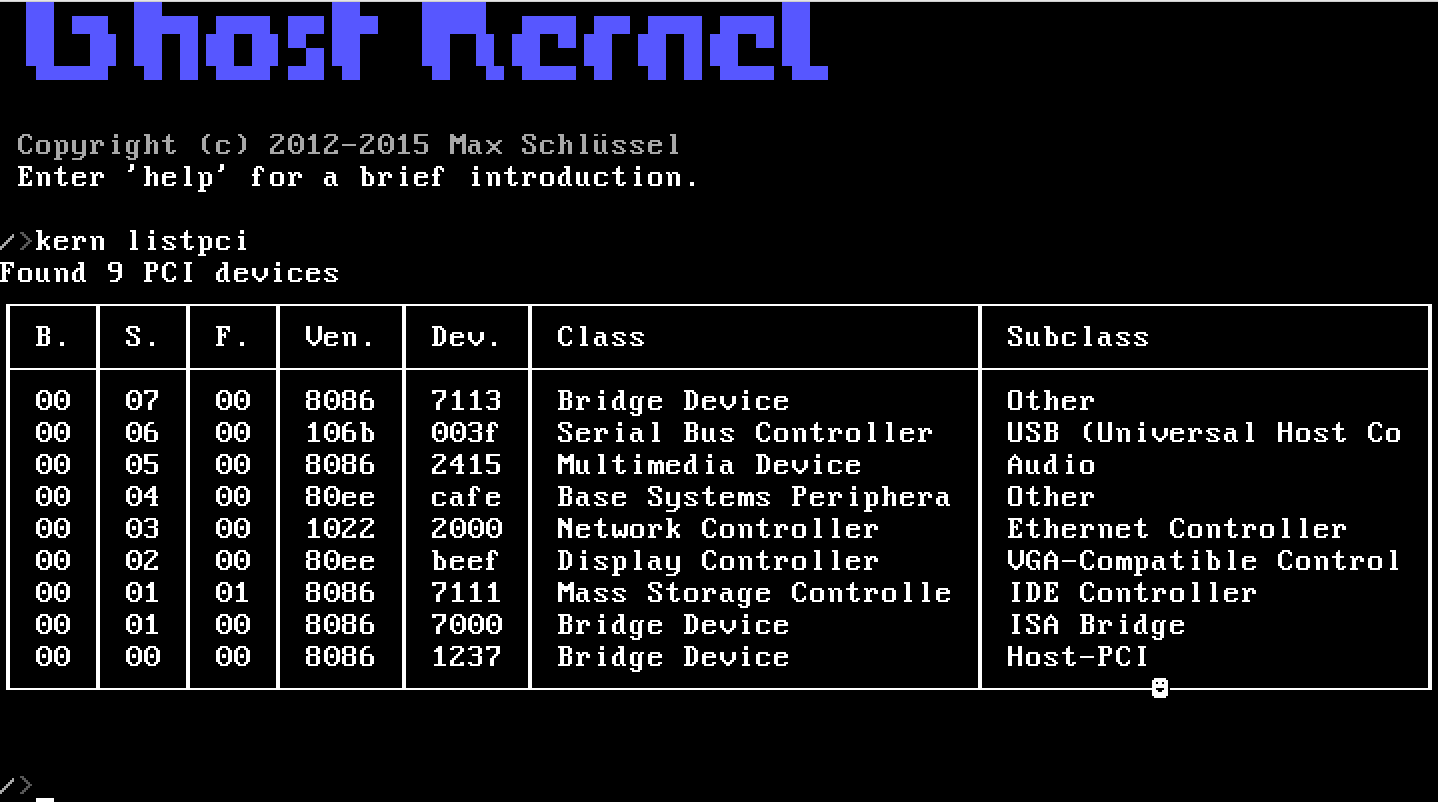Cairo / Removed old messaging interface / Documentation 2016/04/09, 21:06:41
In an effort to get some proper painting I decided to port the cairo graphics library, which has advanced painting and nice performance. This made the UI a little bit faster in general. There are still some things to do (text fields must be fixed to work for cairo), but the overall experience with the library is great so far.
The obsolete messaging interface (g___send___msg, g___recv___msg, g___recv___topic___msg) was removed from the kernel. All applications that previously used it are now using the new interface that supports arbitrarily sized messages (g___send___message, g___receive__message).
Last but not least: I've been working a lot on a nice documentation using asciidoc, which will go online soon and be continuously updated and complemented.

